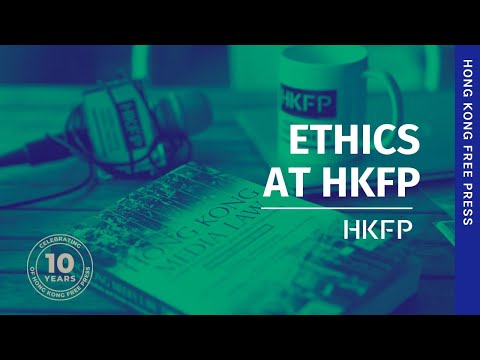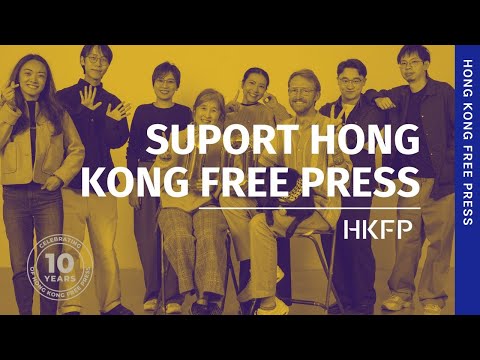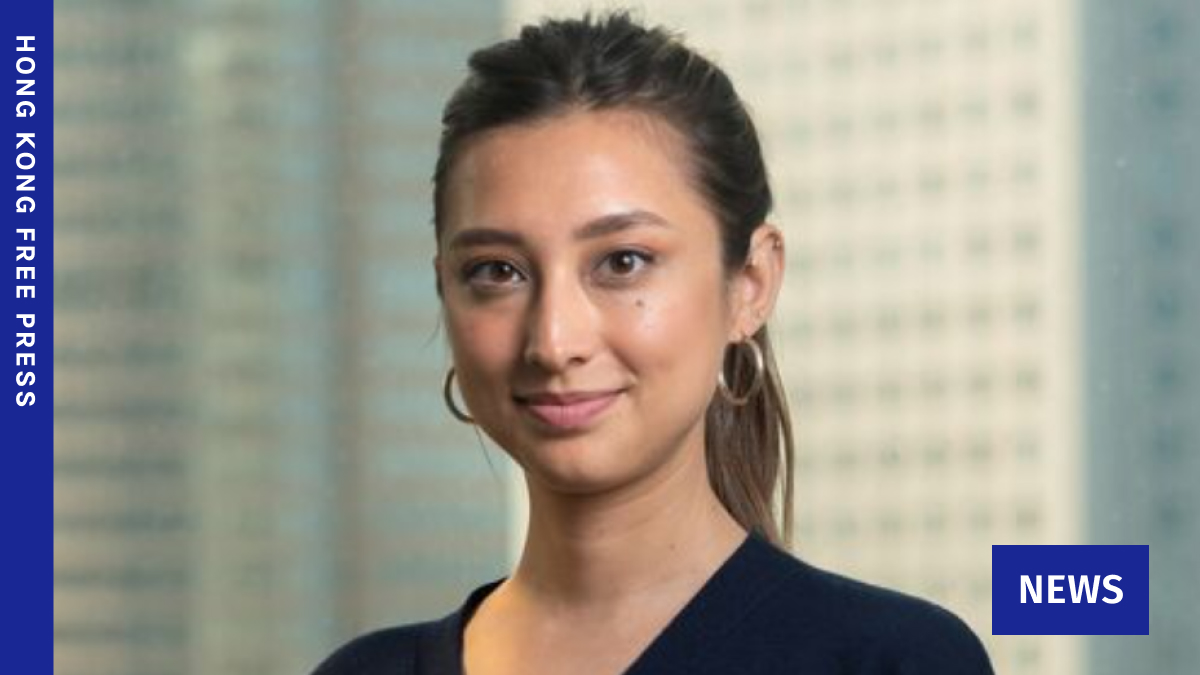Bloomberg journalist Rebecca Choong Wilkins has been denied a work visa renewal by the Hong Kong Immigration Department, with no reason given, according to the local press club.
It is the latest in a string of unexplained visa denials for journalists, despite Hong Kong’s drive to attract talent and repeated assurances over press freedom.
 Bloomberg journalist Rebecca Choong Wilkins. Photo Bloomberg.
Bloomberg journalist Rebecca Choong Wilkins. Photo Bloomberg.
The Foreign Correspondents’ Club said Wilkins was not given a reason for the visa denial, but had worked for the financial news outlet for six years. She most recently served as a senior reporter on the Asia government and economy team.
“Regrettably, this decision and the lack of explanation reinforces widespread concerns about the erosion of press freedom in Hong Kong, which is protected under the Basic Law and the Bill of Rights,” the club said in a Friday statement. “We support any application for this decision to be urgently reviewed and call for future applications for employment visas and visa extensions for international journalists to be handled in a timely and transparent manner.”
It urged the government to show greater transparency and said it had sought clarification from the authorities.
It is unclear if Wilkins will be deployed elsewhere, or was hoping to apply for permanent residency in Hong Kong, which is open to those who have worked for at least seven years in the city.
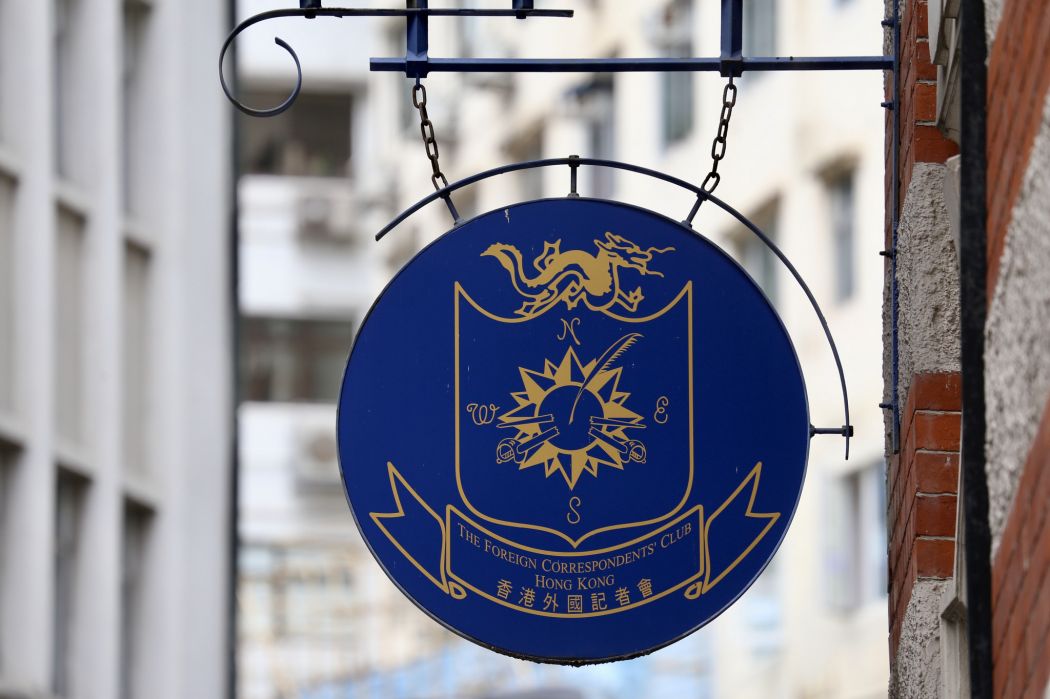 Foreign Correspondents’ Club, Hong Kong. File photo: inmediahk.net via CC.2.0.
Foreign Correspondents’ Club, Hong Kong. File photo: inmediahk.net via CC.2.0.
A Bloomberg News spokesperson told HKFP on Saturday that they could not comment on the case, but they will “continue to work through the appropriate avenues to try to resolve the matter.”
The Immigration Department did not respond directly as to why it rejected the visa, saying they would not comment on individual cases: “While each application is determined on its individual merit, an applicant for extension of stay should continue to meet the eligibility criteria under the general employment policy and normal immigration requirements.”
In a tweet on Saturday, Wilkins – who had previously written about journalist visa denials – said: “After six years of reporting in Hong Kong, and at eight months pregnant, I’m very sad to be leaving my colleagues, friends and the place I’ve called home.”
HKFP has reached out to Wilkins for comment.
‘Bad for business’
Speaking personally, the chair of the Hong Kong Journalists Association Selina Cheng told HKFP that companies need to consider the risk of investing in overseas talent as visa denials are becoming routine: “Unpredictability is simply bad for business and does nothing positive for the Hong Kong government’s mission to have a good story told about itself.”
Cheng added that there have been more cases of visa denials than have been openly reported, as she raised concerns about “intrusive and unnecessary” questions posed by Immigration.
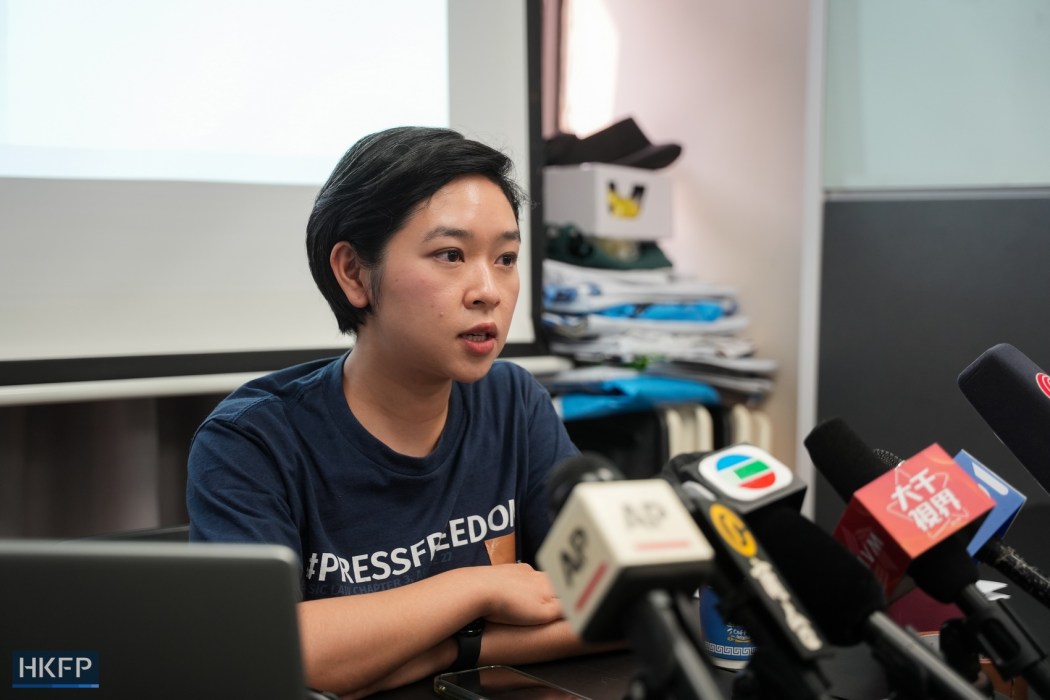 Head of the Hong Kong Journalists Association Selina Cheng meets the press on May 21, 2025. Photo: Kyle Lam/HKFP.
Head of the Hong Kong Journalists Association Selina Cheng meets the press on May 21, 2025. Photo: Kyle Lam/HKFP.
“We have also heard an increasing number of examples where expatriates wishing to renew or obtain a visa to work in Hong Kong were asked literally hundreds of questions about their past background. Authorities solicited information and documents such as months worth of bank statements and lists of dates they met diplomats from their home countries,” she said.
Free expression NGO Reporters Without Borders decried what it called “visa weaponisation” in a statement on Saturday: “This decision sends a chilling message to the business community: even journalists working for a business-focused news agency can be denied entry simply for doing their job. Authorities must end this infamous practice, as Hong Kong’s press freedom continues to edge closer to that of China, ranking 140th out of 180 countries in the RSF Press Freedom Index.”
String of visa denials
It is not the first time local authorities have denied a visa renewal to a journalist. Last year, Bloomberg journalist Haze Fan saw her visa application rejected, with no reason given.
Months later, award-winning Associated Press photographer Louise Delmotte was denied entry to Hong Kong after her visa renewal was denied without any reason given.
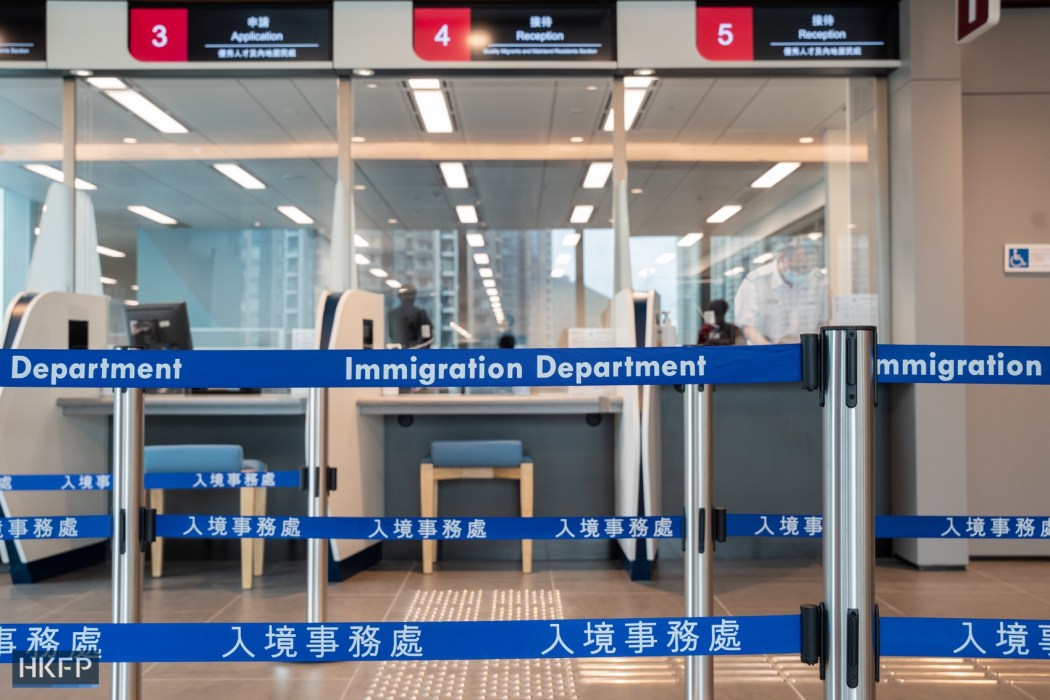 The Immigration Department in Tseung Kwan O, Hong Kong, on June 11, 2024. Photo: Kyle Lam/HKFP.
The Immigration Department in Tseung Kwan O, Hong Kong, on June 11, 2024. Photo: Kyle Lam/HKFP.
In 2020, Hong Kong Free Press was denied a work visa, without reason, for an Irish journalist who had been working for Bloomberg. The New York Times’s Chris Buckley was also denied a visa in 2020, after Victor Mallet of the Financial Times had an application rejected in 2018.
A reporter from The Economist was also denied a visa in 2021 without reason.
Hong Kong has plummeted in international press freedom indices since the onset of the 2020 and 2024 security laws. Watchdogs cite the arrest and jailing of journalists, raids on newsrooms and the closure of around 10 media outlets including Apple Daily, Stand News and Citizen News. Over 1,000 journalists have lost their jobs, whilst many have emigrated. Meanwhile, the city’s government-funded broadcaster RTHK has adopted new editorial guidelines, purged its archives and axed news and satirical shows.
See also: Explainer: Hong Kong’s press freedom under the national security law
In 2022, Chief Executive John Lee said press freedom was “in the pocket” of Hongkongers but “nobody is above the law.” Although he has told the press to “tell a good Hong Kong story,” government departments have been reluctant to respond to story pitches.
Support HKFP | Policies & Ethics | Error/typo? | Contact Us | Newsletter | Transparency & Annual Report | Apps
Safeguard press freedom; keep HKFP free for all readers by supporting our team
